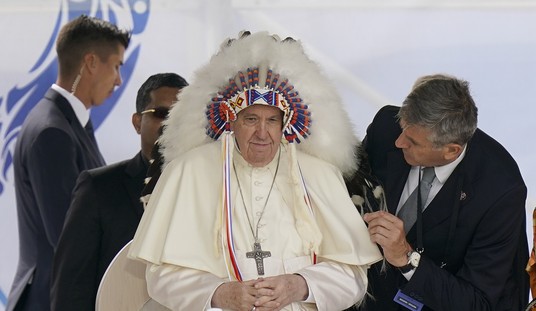Some bloggers are claiming this means Chessani’s been cleared. Not so. It might actually be more significant than that.
A military judge has dismissed charges against a Marine officer accused of failing to investigate the killings of 24 Iraqis.
Col. Steven Folsom dismissed charges Tuesday against Lt. Col. Jeffrey Chessani after defense attorneys raised concerns that a four-star general overseeing the prosecution was improperly influenced by an investigator probing the November 2005 shootings by a Marine squad in Haditha.
The charges can be refiled but Marine central command is barred from further participation. To be clear: This doesn’t (necessarily) mean there’s insufficient evidence against Chessani to proceed, it means someone overstepped their bounds. What does that mean in this case, you ask? Read this AP story from two weeks ago. I don’t know the vagaries of military justice but it sounds like there’s supposed to be a wall of separation between the people investigating the incident and Gen. Mattis, who’s responsible for deciding whether to bring charges or not. Presumably that’s so Mattis can make up his mind based purely on the evidence and not the opinions of the investigators themselves. Did he?
The finding by Col. Stephen Folsom, the military judge, stemmed from Chessani’s claim there was a conflict of interest in the case because Col. John Ewers, a military lawyer who investigated the November 2005 killings and took Chessani’s statement, became Mattis’ top legal adviser and sat in on briefings despite military policy prohibiting him from offering advice.
Mattis testified he never had a conversation with Ewers about Hadithah, although Ewers was present during a number of legal meetings where Hadithah and Chessani were discussed.
I guess Folsom didn’t believe his testimony because today’s ruling appears to have been based on a presumption of “unlawful command influence” stemming from the Mattis/Ewers relationship. Any military readers willing and able to help clarify here? I could understand if Ewers was the higher ranking officer and was accused of pressuring Mattis to bring charges, an extreme danger in a case as politicized as that, but what exactly is the worry here about influence? Is it simply that, by having Mattis’s ear, Ewers may have introduced his lowly colonel’s opinion on the merits of the case into the charging process?








Join the conversation as a VIP Member